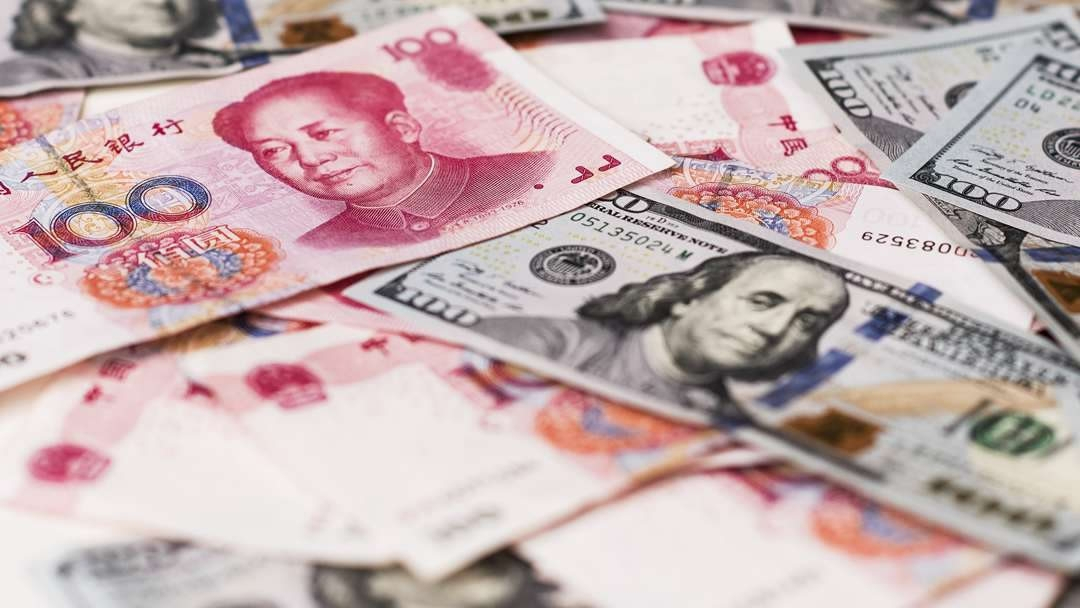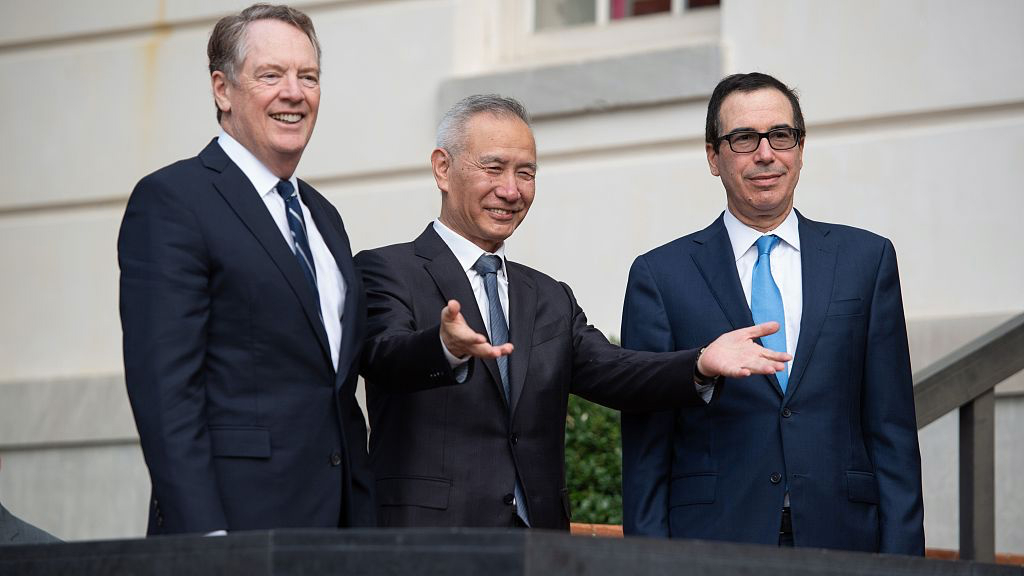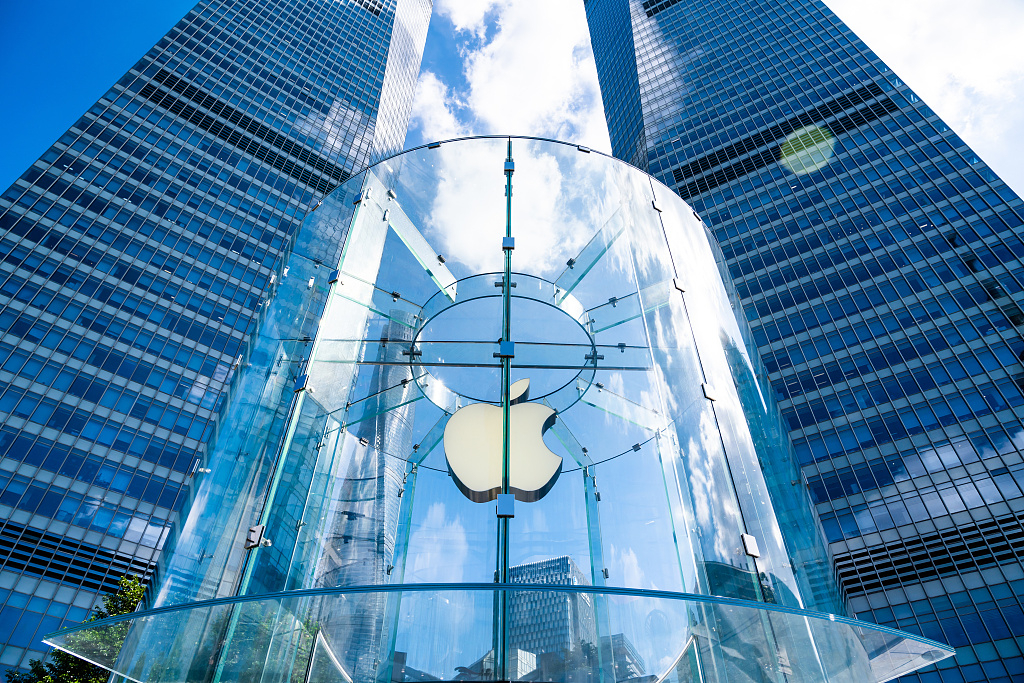
Editor's Note: Tom Fowdy is a British political and international relations analyst and a graduate of Durham and Oxford universities. He writes on topics pertaining to China, the DPRK, Britain and the United States. The article reflects the author's opinions and not necessarily the views of CGTN.
For the past week or so, we have heard so much regarding what Americans have described as "self-censorship" imposed by their companies operating in China. The controversies surrounding the NBA, Blizzard and more has led to an angry backlash across American society, with people accusing such firms as "betraying American values."
These enterprises have been criticized for "putting profit" before anything else, with locals attempting to force these businesses instead to obligate to taking stances on such issues, such as the Hong Kong protests, which they believe is out of principle, regardless of how China feels about it.
However, despite vocal attempts at public pressure and more extreme voices attempting to box enterprises into a "you choose us or them" scenario, businesses in the U.S. are not likely to change course in their decision to invest in China and in avoiding taking stances which antagonize the country.
Why so? Because China now represents a larger and more lucrative market than the U.S. itself. The United States, used to the assumption of a world order wherein its own outlook ruled the day, has yet to come to terms with the fact that China has risen into a global core of business and enterprise to the point of exceeding its capabilities.
Thus, the age of unilateralism is over and China is capable of standing up for its own terms. No amount of finger pointing or condemnation is going to change this.

U.S. Treasury Secretary Steven Mnuchin (R) and U.S. Trade Representative Robert Lighthizer (L) greet Chinese Vice Premier Liu He (C) as he arrives for trade talks at the Office of the U.S. Trade Representative in Washington, U.S., October 10, 2019. /VCG Photo
U.S. Treasury Secretary Steven Mnuchin (R) and U.S. Trade Representative Robert Lighthizer (L) greet Chinese Vice Premier Liu He (C) as he arrives for trade talks at the Office of the U.S. Trade Representative in Washington, U.S., October 10, 2019. /VCG Photo
Since the 1990s, the U.S. has been used to the assumption that it is the world's sole hegemon, and, from its victory in the Cold War, believed liberalism was indeed "the end of history" – that was the final, indisputable and thus universal standard for all mankind.
In doing so, the American mindset has projected its values as applicable to the entire world, believing for a time that all countries would simply follow suit.
That included of course, China, whereby it was assumed it would become like the U.S. and the idea it could find its own pathway of development or defy the "liberal path" was unthinkable. Thus, for many decades the U.S. happily promoted economic ties between the two countries.
However, the changes they sought did not emerge. China has continued to grow and grow until it has become the world's second largest economy, and in the process of doing so has not "naturally" adopted the political system which Americans anticipated it to.
This has provoked deep anxiety in Washington, as it has challenged fundamental U.S. assumptions about the world by illustrating that not all countries are destined to move in one path, thus giving birth to the "China threat theory" and a mass hysteria in Washington which has sought to demonize or tear down many aspects of the otherwise lucrative relationship between the two countries.
This political anxiety is now trying to exert pressure on businesses, but it is woefully out of touch. With 1.4 billion people, China's population is over 4 times the size of the United States. As a result, with rapid economic growth has emerged a consumer market which is far, far larger than anything America can ever muster.
This has allowed American companies to kindle success in China that they cannot replicate back home. This context laid the foundation for the friction now between enterprises and some public figures, with China having the influence to ensure such businesses respect its terms and sovereignty.

Apple logo is seen at an Apple retail store at the IFC Mall in Pudong New Area, Shanghai, China, September 20, 2019. /VCG Photo
Apple logo is seen at an Apple retail store at the IFC Mall in Pudong New Area, Shanghai, China, September 20, 2019. /VCG Photo
In reacting to such, American public figures believe they can force things back to the "old normal" – whereby the American view is what goes for the entire world, thus putting China back into a subordinate place where they think it belongs.
They come out with aggressive rhetoric demanding the businesses "choose between us or China" or threaten boycotts. However, they cannot turn back the clock. American unilateral hegemony is fading, and China now has emerged into one of the core hubs of business, consumerism and markets in the world.
There is absolutely nothing that can change this, and it's only going to move in one direction. The U.S can forcibly exclude itself, but at a severe cost to its own businesses, jobs and competitiveness.
In this case, the U.S. now must come to terms with China's rise as a business power and look to manage relations with Beijing in this area on more pragmatic terms.
The world has changed. Access to the Chinese markets is not compromising American values or influencing politics back home, but it is nevertheless a recognition that in practical terms, Washington's vision is no longer universal.
China is for many intents and purposes now, an equal to the U.S. which can hold its own. There can be no containment, no pushing it back to subordination, or back in a box. The world has changed.
(If you want to contribute and have specific expertise, please contact us at opinions@cgtn.com.)